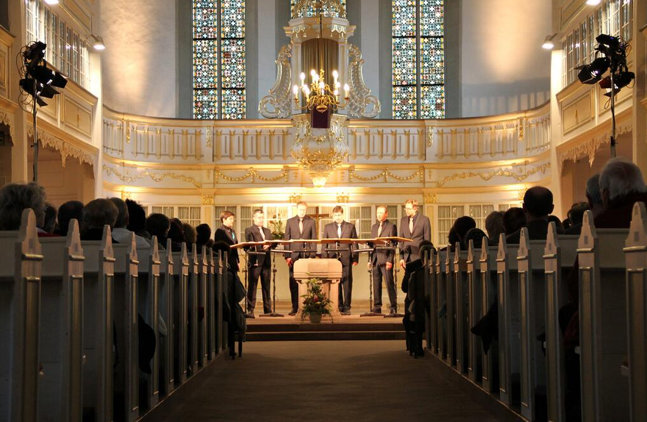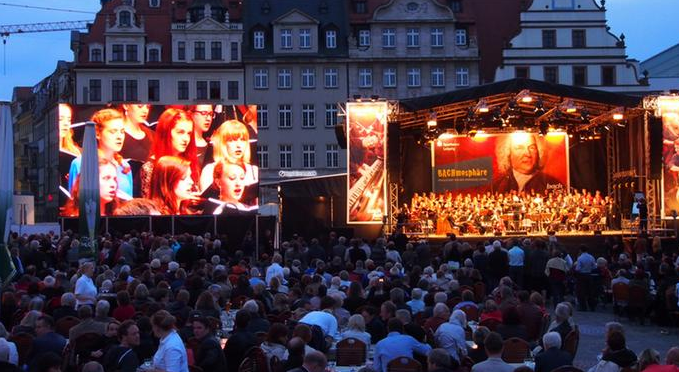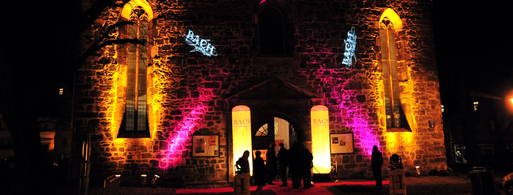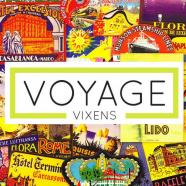Mozart was Austrian, but did you know that classical music heritage actually has the strongest roots in Germany?
Martin Luther and the new Protestant faith changed the face of classical music due to their strong influence on famous composers, such as Johann Sebastian Bach, the wider Bach family and also Handel and Telemann. All of them have their origin in Luther Country, Germany.
So it comes as no surprise they all are celebrated with world-class music festivals throughout the region. These concerts not only feature renowned musicians, but are often performed at authentic venues, such as churches where Bach played and Luther himself preached. Religion aside, music is music, and anyone who appreciates music knows that classical roots can never be underestimated.
Here are some of the upcoming events in Luther Country, should you find yourself needing some classical inspiration!
Arnstadt, March 21 to March 30, 2014
Just south of Erfurt, Arnstadt was once the home of Johann Sebastian Bach. In 1703, he took over as the organist at St Boniface Church and wrote his Toccata and Fugue in D Minor here. What makes this festival special is the series of concerts in the church where Bach played – what is now called the Johann Sebastian Bach Church! Take time to visit Bach’s family home, now open to the public, and to enjoy this town, one of the oldest in Central Europe, complete with a medieval city wall.
Throughout Thuringia, April 11 to May 4, 2014
This year, the prestigious annual Bach Festival pays homage to Bach – not JS, but his son Carl Philipp Emanuel Bach, whose 300th birthday was on March 8th this year. In his time, CPE Bach was even more popular than his father, because of his incredibly diverse body of work: symphonies, chamber music, piano sonatas, pieces for solo instruments, as well as ecclesiastical music. During the festival, concerts are performed in a dozen cities, towns and villages where the extraordinary Bach family lived or worked.
Halle (Saale), June 5 to June 15, 2014
Each year, Halle (Saale), the birthplace of George Frideric Handel, celebrates the world’s best-loved Baroque musician during this festival that dates back to 1922. Every one of the 80 or so concerts features renowned artists, so superb performances are guaranteed. By tradition, the festival opens with a ceremony at the Handel Memorial on the city’s main square and closes in the Galgenberg Gorge with Handel’s most popular pieces, accompanied by fireworks. And, of course, a visit to Handel’s house is a must!
Köthen, September 3 to September 7, 2014
Among J. S. Bach’s best-known works are the Brandenburg Concertos. These much-loved pieces were composed in Köthen, where Bach was Director of Music for the Prince of Anhalt-Köthen. Visit the composer’s home, the Bach House, and listen to a concert in the spectacular Hall of Mirrors at Köthen Castle. The city celebrates him with the International Bach Festival – but it only takes place every other year. This year, 2014, is the year – so be sure to plan on being there!
For more information about these and many more international events in Luther Country, visit: www.visit-luther.com.
More about Luther Country
Would you like to step inside the very room in which Martin Luther translated the New Testament into German, or admire the pulpits from which he preached and where pastors still preach today? Do you want to taste beer brewed the way Martin Luther liked it? Luther Country, where you can explore Luther’s old stomping grounds and much more!
Luther Country is situated in the heart of Germany and has so much to offer, from fascinating churches and museums for the believers and history or culture fans among you, to beautiful landscapes that could be straight out of a children’s picture book.
What do the places in Luther Country all have in common? Centuries ago, they were the stage for Martin Luther’s tumultuous life and thus played a special role in the Reformation, which changed the way people thought about so many aspects of daily life. Martin Luther’s influence spread through Western Europe and, with European settlers, to the United States.





 Subscribe to our email to get the latest news, travel tips, tricks of the trade, and our most recent posts delivered straight to your inbox monthly.
Subscribe to our email to get the latest news, travel tips, tricks of the trade, and our most recent posts delivered straight to your inbox monthly. 